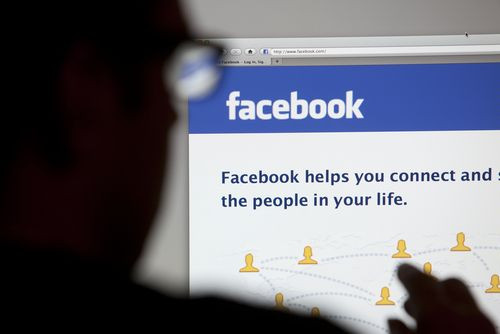Shy People Are Lingering, Non-Posting Facebook Users: Introverts Vs. Extroverts On Facebook

The more social media and our lives on the Internet become omnipresent in interaction, the greater stock scientists and psychologists put into researching how and why we use social media and what it can tell about us in the real world. One of the newest investigations was conducted on Facebook and has revealed those who are shyer and less active on Facebook are the ones spending more time scrolling through their newsfeed and going through others’ pictures and posts.
Shyer, more introverted people use Facebook as a way to socialize without the commitment of human interaction. In turn, they receive less relationship benefits from the site, such as maintenance and new interactions. The opposite is true for the social butterfly with an extroverted personality. For the study, researchers focused on narcissists because they crave attention and have an intrinsic desire to be in the spotlight. The extroverts and narcissists posted more photos and posts, but spent less time than the introverts, who had less of an online presence even though they spent more time on it.
“The shy people spend more time on Facebook, but they disclose less information,” Dr. Pavica Sheldon, a Communications professor at the University of Alabama in Huntsville (UAH), who has done several studies on use of the social media site by university students, said in a press release. There are more than 500 million Facebook users, which gave Sheldon a lot of data to look at. However, she focused on the students at UAH. “Shy people and people who are more lonely use Facebook to pass the time.”
While women tend to share more personal information than men do, an extrovert still places more importance on their online presence and exchange of information, regardless of their gender. Shyness and self-disclosure go hand-in-hand when it comes to interaction online, but also translates to interactions in person as well. Narcissists will hop on Facebook, post something, then hop off and move onto an in-person social interaction, while the shy person will remain online, undistracted by the in-person social aspects of their reality.
“Narcissists like fame, they like to be seen,” Sheldon said. “That behavior accrues more of the social benefits of Facebook to those people, who also are more socially gregarious in person. “What I found out is that my research supports the ‘rich get richer’ hypothesis. Those users who are richer in their offline relationships will also benefit more from their use of Facebook. The more extroverted you are, the more you will benefit. Posting pictures gives them more control over how they are being presented.”
Extroverts are also more likely to air their dirty laundry on Facebook more than shy people, which can be dangerous when it comes to romantic relationships. However, it is the people who spend more time on Facebook that are at a higher risk for divorce, according to Dr. Sheri Meyers, an intimacy expert and author. In 2011, the world “Facebook” came up in one-third of the divorce fillings in 2011, which rivals the dangerous understatement that Facebook is just a website, when it can lead to more socialization, but also chancier behavior.
“My earlier research says that the main reason we use Facebook is to maintain relationships with people we know but don’t have physical access to,” Sheldon said. “I look at how people maintain their relationships on Facebook and the quality of those relationships when they are compared to the quality of their relationships face-to-face. As a dating site, it doesn’t get many thumbs-up likes. She’s found it isn’t much of a meet-and-greet kind of place. They are not meeting new people much. It’s mostly people they already know.”
Source: Sheldon P. Voices that cannot be heard: Can shyness explain how we communicate on Facebook versus face-to-face? Computers in Human Behavior. 2013.



























